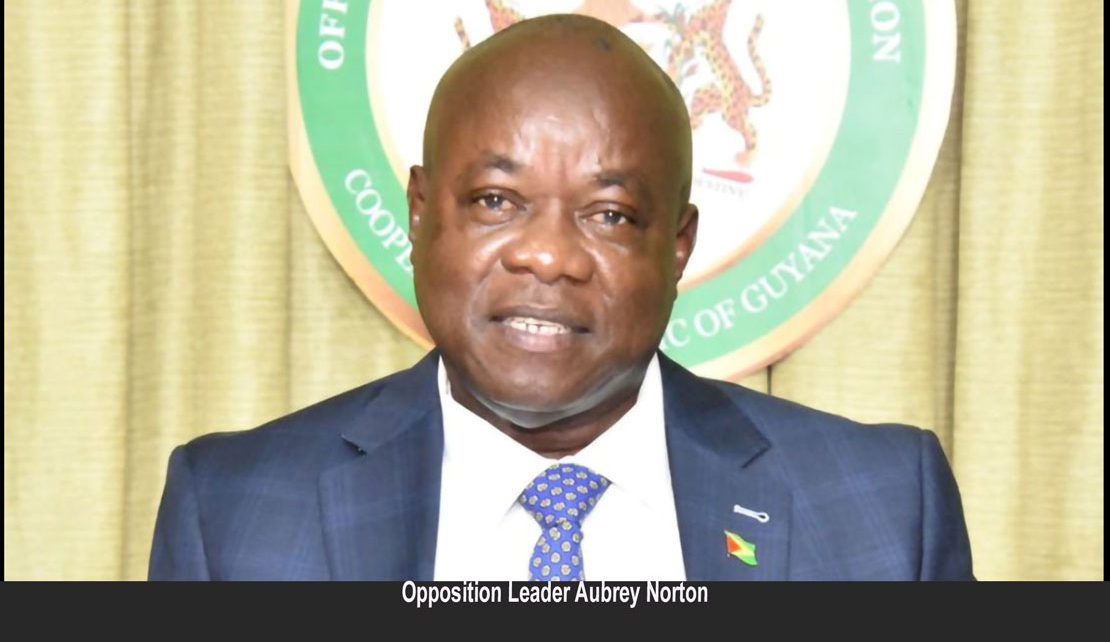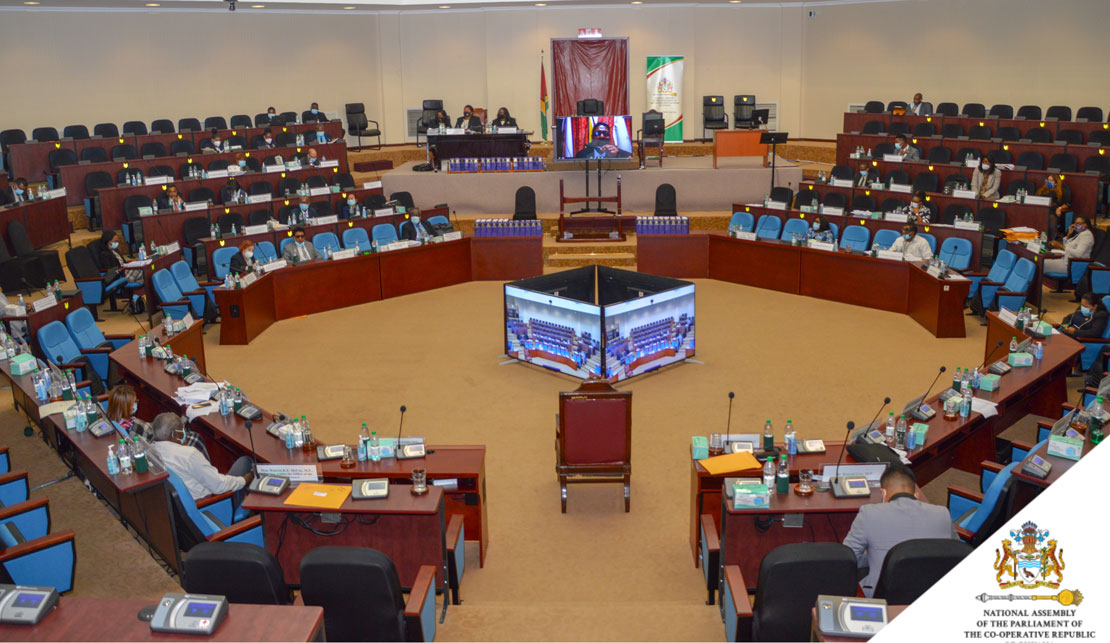GUYANA | Gov't electronically evesdropping on Opposition? APNU+AFC MPs Livid!

GEORGETOWN, Guyana, February 3, 2024 - A shadow has been cast over the sanctity of Guyana's parliamentary proceedings following revelations of electronic eavesdropping within the Opposition APNU+AFC's caucus room.
Members of the Parliamentary Opposition have expressed profound indignation over what they describe as an "egregious breach" of parliamentary decorum at the Arthur Chung Convention Centre, the heart of Georgetown's political arena.
During the live broadcast of the 2024 Budget Consideration of Estimates & Expenditure, sensitive discussions involving Opposition Leader Aubrey Norton and members of parliament Ganesh Mahipaul and Cathy Hughes were inadvertently aired, unveiling a blatant invasion of privacy.

The breach not only questions the integrity of parliamentary confidentiality but also the security measures in place to protect such sensitive deliberations.
The Opposition's statement underscores a severe departure from established parliamentary protocols, marking a disturbing trend of surveillance that could have far-reaching implications on the democratic process.
This incident is part of a worrying pattern, highlighted by the recent emergence of footage recorded within parliamentary precincts, which should have remained confidential.
Owned by the Ministry of Tourism, the Arthur Chung Convention Centre's role in this breach adds a layer of complexity, suggesting governmental oversight in what should be a neutral space for legislative discourse.
The ramifications of this intrusion extend beyond immediate privacy concerns, posing a significant threat to the foundational principles of Guyana's parliamentary democracy.
This unprecedented event in the National Assembly's history raises legitimate concerns about the extent of surveillance faced by parliamentary opposition members, potentially undermining the very fabric of democratic governance in Guyana.
As the nation grapples with the implications of this breach, the call for transparency, accountability, and stringent safeguards to protect the sanctity of parliamentary discussions has never been more critical.
The incident not only challenges the trust in the current parliamentary process but also underscores the necessity for a robust dialogue on privacy, security, and democratic integrity within Guyana's political sphere.
In May 2022, responding to concerns by Guyana Press Association’s Nazima Raghubir, President Irfaan Ali sought to assure journalists and media houses that his government will not utilize spyware such as Pegasus being sold by the Israelis.
“This government has no intention whatsoever; it has not even contemplated my mind to move in any direction to have any spyware. I have not even imagined something like that, it will never happen, at least under this government,” Ali said.
He also remarked that wherever spyware is being used against journalists, it “should be rooted out because no government should by spying on their population not in the democratic construct of a free society.”
Dating back to colonial times, the Guyana Police Force has a Special Branch department that monitors and infiltrates political parties, the media, trade unions and other non-governmental organisations. The Guyana Defence Force’s intelligence department also performs similar functions. The Interception of Communication Act, which was approved in 2008, authorises the State to eavesdrop on suspects through a court order, and since then a sophisticated system has been constructed in the Castellani House compound to perform that function as part of a national intelligence network.
In Trinidad and Tobago, under pressure from the opposition United National Congress (UNC), the State security has admitted to being in possession of components of spyware but has said they have not been used. Both police and the government had denied that they are in possession of the Pegasus spyware that can reportedly intercept calls and messages from platforms such as WhatsApp.
“I reject the false narratives that, the state is using Pegasus, that the Trinidad and Tobago Police Service (TTPS) is conducting interception of communications outside of the suite provided and controlled by the Strategic Services Agency (SSA), under the laws of Trinidad and Tobago, and that there are any individuals being targeted by law enforcement for intercept who are not under suspicion of being involved in serious criminal activity,” Prime Minister Dr Keith Rowley said in a lengthy statement to Parliament.
Israel’s NSO Group and its Pegasus malware have been in the headlines since at least 2016 when researchers accused it of helping spy on a dissident in the United Arab Emirates.
Recent revelations raise privacy and rights concerns and reveal the far-reaching extent to which the private Israeli company’s software is being used by its clients internationally.
The extent of the use of Pegasus was reported by The Washington Post, the Guardian, Le Monde and other news outlets who collaborated on an investigation into a data leak.
The leak was of a list of more than 50,000 smartphone numbers believed to have been identified as people of interest by clients of NSO since 2016, the media outlets said.
The Post said the list was shared with the news organisations by Forbidden Stories, a Paris-based journalism nonprofit, and Amnesty International. The newspaper said the total number of phones on the list that were actually targeted or surveilled is unknown.
The Post said 15,000 of the numbers on the list were in Mexico and included those of politicians, union representatives, journalists and government critics.
The list reportedly included the number of a Mexican freelance journalist who was murdered at a carwash. His phone was never found and it was not clear if it had been hacked.
-30-
